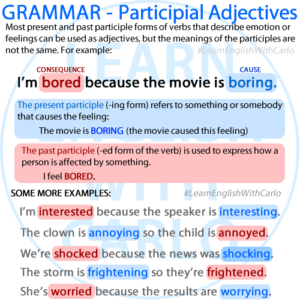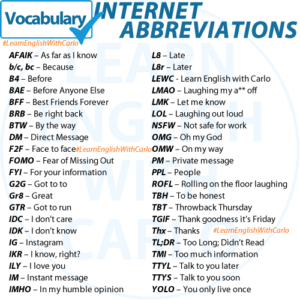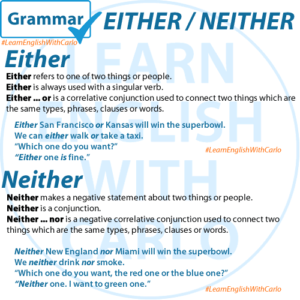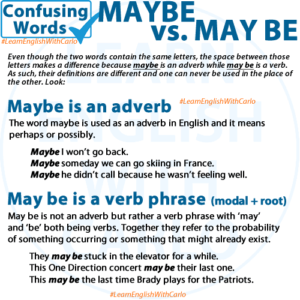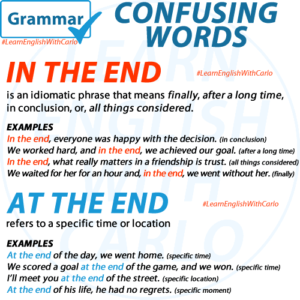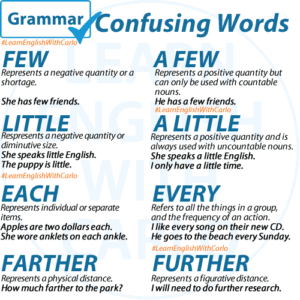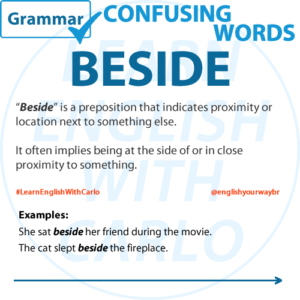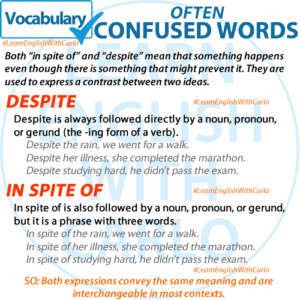The Difference Between -ed and -ing Forms In English, many verbs that describe emotions or feelings can be transformed into adjectives by using their present or past participle forms. However, it’s important to note that these two forms convey different meanings. Let’s explore how to use these participial adjectives correctly. Present Participle (-ing Form) The …
Category: CONFUSING WORDS
Permanent link to this article: https://englishyourway.com.br/participial-adjectives-in-english/
Oct 23
VOCABULARY – Internet Abbreviations (with definitions)
Common Internet Abbreviations in Everyday Use With the rise of online communication, abbreviations have become a fast and convenient way to convey messages. Here are some common internet abbreviations you might come across: How Abbreviations Change the Way We Communicate Internet abbreviations not only save time but also add a casual tone to conversations. They …
Permanent link to this article: https://englishyourway.com.br/vocabulary-internet-abbreviations-with-definitions/
Oct 19
GRAMMAR – Either & Neither
GRAMMAR – Either & Neither Either refers to one of two things or people. Either is always used with a singular verb. Either … or is a correlative conjunction used to connect two things which are the same types, phrases, clauses or words. Neither makes a negative statement about two things or people. Neither …
Permanent link to this article: https://englishyourway.com.br/grammar-either-neither/
Sep 28
GRAMMAR – MAYBE vs MAY BE
MAYBE vs MAY BE Even though the two words contain the same letters, the space between those letters makes a difference because maybe is an adverb while may be is a verb. As such, their definitions are different and one can never be used in the place of the other. Look: MAY BE (Verb Phrase) …
Permanent link to this article: https://englishyourway.com.br/grammar-maybe-vs-may-be/
Sep 26
GRAMMAR – AT THE END vs IN THE END
GRAMMAR – AT THE END vs IN THE END English learners often confuse the phrases at the end and in the end because they sound similar. However, their meanings and usage are distinct. Let’s break them down and look at some examples to help you use these phrases correctly. What Does AT THE END Mean? …
Permanent link to this article: https://englishyourway.com.br/grammar-at-the-end-vs-in-the-end/
Permanent link to this article: https://englishyourway.com.br/grammar-adjectives-that-quantify/
Aug 26
CONFUSING WORDS – Beside vs. Besides
Beside:“Beside” is a preposition that indicates proximity or location next to something else.It often implies being at the side of or in close proximity to something. Examples:She sat beside her friend during the movie.The cat slept beside the fireplace. Besides:“Besides” is an adverb or a preposition that has several meanings:In addition to or apart from.Moreover …
Permanent link to this article: https://englishyourway.com.br/confusing-words-beside-vs-besides/
Aug 14
DESPITE vs. IN SPITE OF
Both “in spite of” and “despite” mean that something happens even though there is something that might prevent it. They are used to express a contrast between two ideas. Structure Key Points to Remember Examples with Explanations Practice Exercise Ask your students to rewrite sentences using “in spite of” and “despite”: Visual Aid Create a …
Permanent link to this article: https://englishyourway.com.br/despite-vs-in-spite-of/
Aug 13
GRAMMAR -ILLICIT vs ELICIT
GRAMMAR -ILLICIT vs ELICIT ILLICIT is an adjective that’s used to talk about things people aren’t supposed to do because they are illegal. EXAMPLES He is credited with taking a number of illegal firearms and illicit drugs off the streets. Silk Road is a dark web bazaar where users could buy and sell drugs and …
Permanent link to this article: https://englishyourway.com.br/grammar-illicit-vs-elicit/
Jul 29
GRAMMAR – Still vs. Yet vs. Already
“Still,” “yet,” and “already” are commonly used adverbs in English that can sometimes be confusing. They help indicate time and the progression of events, but each has its own specific use and nuance. This guide will explain the differences between these three words, complete with definitions and examples to clarify their correct usage. STILL Definition: …
Permanent link to this article: https://englishyourway.com.br/grammar-still-vs-yes-vs-already/

